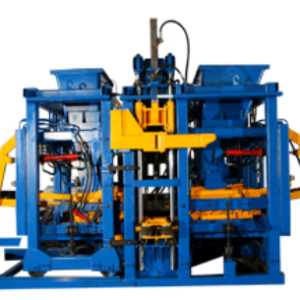Are there specific industries or sectors apart from construction that utilize automatic block making machines?
On December 4, 2023 by Javier James With 0 Comments
- Blogging
While the primary application of automatic block making machines is in the construction industry for producing various types of blocks used in building and infrastructure, these machines have found utility in other sectors as well:
- Manufacturing and Industrial Applications: Some industries use blocks or bricks in their manufacturing processes for structural support, partitions, or specialized applications within factories or industrial settings.
- Landscaping and Outdoor Design: Automatic block making machines produce decorative blocks used in landscaping projects, creating retaining walls, garden borders, pathways, and decorative structures in parks, gardens, and public spaces.
- Agriculture and Farming: Concrete blocks produced by these machines can be used in agriculture for constructing storage units, animal enclosures, or boundary walls on farms and agricultural facilities.
- Infrastructure Development: Beyond traditional construction, automatic block making machines support infrastructure development projects, such as roadways, bridges, and drainage systems, where blocks are used for structural and functional purposes.
- Disaster Relief and Humanitarian Aid: In disaster-prone areas or regions requiring rapid construction, these machines facilitate the quick production of blocks for emergency shelters, housing, and infrastructure rehabilitation.
- DIY and Home Improvement: Homeowners or small-scale contractors might utilize these machines for personal projects, such as building walls, garages, or other structures in DIY home improvement endeavors.
- Urban Development Projects: Urban planners or municipal authorities use these machines to produce blocks for community development projects, including building public amenities like benches, bus stops, or recreational structures.
- Educational or Training Institutes: Vocational schools or technical training institutes may use these machines for educational purposes to train students in block manufacturing processes and construction techniques.
- Public Works and Municipal Services: Municipalities may employ these machines to produce blocks for public works projects, such as sidewalks, curbs, drainage systems, or utility enclosures.
While the construction industry remains the primary user of automatic block making machines, their versatility allows for applications in various sectors where concrete or cement blocks are required for structural or functional purposes.
How do these machines contribute to sustainable construction practices or environmental conservation?
Automatic block making machines contribute to sustainable construction practices and environmental conservation in several ways:
- Resource Optimization: These machines enable precise measurement and control of raw materials, minimizing waste and optimizing material consumption. This efficiency reduces resource depletion and minimizes environmental impact.
- Recycled Materials Integration: Some machines allow for the incorporation of recycled materials, such as crushed aggregates or industrial by-products, into block production. This reduces the demand for virgin materials and promotes recycling.
- Energy Efficiency: Modern automatic machines are designed to operate efficiently, consuming minimal energy while maintaining high productivity. automatic block making machine Energy-efficient systems contribute to reduced operational costs and environmental impact.
- Emission Reduction: Advanced machinery incorporates technologies that reduce emissions and pollutants released during the production process, contributing to improved air quality and reduced environmental pollution.
- Water Conservation: Some machines optimize water usage during the manufacturing process, minimizing water consumption or incorporating recycling systems to reuse water in the production cycle.
- Longevity and Durability: Blocks produced by these machines often have longer lifespans due to their durability. Long-lasting structures reduce the need for frequent replacements, leading to less waste generation over time.
- Sustainable Building Practices: Blocks manufactured by these machines contribute to energy-efficient and sustainable building designs. They provide better insulation, reducing energy consumption in buildings over their lifetime.
- Waste Management: Precise control over materials and processes minimizes waste generation during block production. Efficient waste management practices are implemented, contributing to environmental conservation.
- Support for Green Building Certifications: Blocks manufactured using sustainable practices may contribute to meeting criteria for green building certifications, such as LEED (Leadership in Energy and Environmental Design).
- Promotion of Sustainable Development Goals: By reducing environmental impact, conserving resources, and promoting sustainable construction practices, these machines align with global sustainability goals and initiatives.
Overall, automatic block making machines, when operated with sustainable practices, significantly reduce the environmental footprint of construction activities. They promote eco-friendly building practices, minimize waste, and contribute to a more sustainable construction industry.

Comments are Disabled